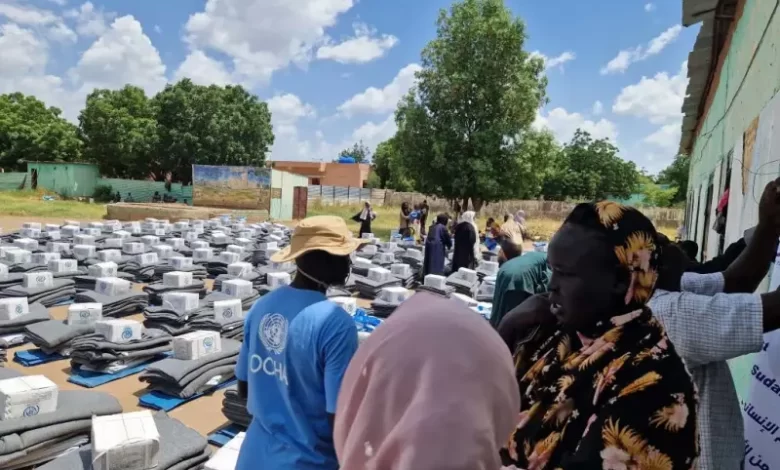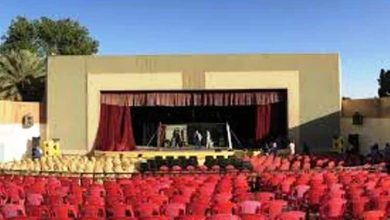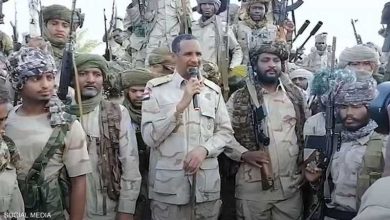Reports
Political Conflicts Obstruct Humanitarian Relief: Field Testimonies from Sudan

Sudan Events – Agencies
Sudan is experiencing a severe humanitarian crisis, considered one of the most complex in the world. This crisis is characterized by millions of Sudanese facing severe shortages of food, water, and healthcare, while the war has destroyed critical infrastructure. As warnings of an imminent famine threatening lives escalate, the International Food Policy Research Institute states that five million Sudanese are at risk of a Level 5 famine, according to the Integrated Food Security Phase Classification. This means that at least 20% of households suffer from severe food shortages, with acute malnutrition levels affecting at least 30% of the population and a mortality rate of at least two people per 10,000 per day. This highlights an urgent need for humanitarian aid to prevent a widespread famine and mass death. Moreover, it underscores the importance of understanding the daily economy, market dynamics, and other aspects of Sudanese life.
Tyler Beckelman, Deputy Assistant Administrator at the U.S. Agency for International Development (USAID), stated that the risk of famine is directly linked to two main factors: resources and access to aid. He added that both sides of the conflict have created numerous obstacles to the delivery of humanitarian assistance, preventing aid workers from reaching affected populations.
The situation is constantly changing. As violence intensifies and the military landscape shifts, markets shrink, and roads are blocked. Recent decisions by the Rapid Support Forces (RSF) to close routes towards army-controlled areas have caused unprecedented disruptions in commercial supply chains and humanitarian aid.
Politics and Humanitarian Aid
International funding policies play a critical role in directing humanitarian aid through mechanisms involving governments and organizations. Dr. El-Hadi Osman, an expert in international organization activities, explained that funding operates on two levels: global and practical.
At the global level, major international organizations, such as the United Nations, make decisions regarding epidemics and aid. Funds are allocated based on these decisions to the relevant countries. At the practical level, aid is delivered through local ministries and partners on the ground, considering field conditions like storage and logistics.
El-Hadi also mentioned that after the war broke out in Sudan, funding priorities shifted. Many donors, such as the World Bank and the International Monetary Fund, reduced or redirected their support to the UN and NGOs like the UNDP and WHO. Despite this, the Sudanese government remained a partner in these projects, but the focus shifted from development to maintaining basic healthcare infrastructure.
He also addressed the difficulties of dealing with military groups like the RSF, emphasizing that aid workers must not support any side. However, he noted that humanitarian organizations are often compelled to work with Sudanese government ministries despite the political and military challenges.
In an interview with “Ather,” a researcher in social studies and advocacy, who chose to remain anonymous, explained that funding comes from various sources. Some are designated and monitored by the UN through the Office for the Coordination of Humanitarian Affairs (OCHA), while other funds come through unofficial channels, such as support from countries like the UAE, raising questions about the associated political agendas.
The researcher stressed that humanitarian aid management in Sudan must remain neutral without supporting any side in the conflict. However, the current situation is complicated, as the RSF controls some areas in Darfur and manages humanitarian operations independently of the Sudanese army through the “Sudanese Relief and Humanitarian Operations Agency,” established by the RSF in mid-August, four months after the war broke out. This agency operates parallel to the government’s Humanitarian Aid Commission (HAC), requiring RSF permits for aid access to Darfur, which they control in most of its states. She also warned against mixing humanitarian aid with military weapons in supply chains, emphasizing that such practices undermine humanitarian principles and exacerbate the crisis.
She added that the war is spreading much faster than aid can mitigate the suffering, and border crossing facilitation disparities further complicate the issue. She highlighted the World Food Programme’s efforts to establish the first food supply line from Chad to West Darfur and emphasized the importance of improving mechanisms for sending funds to Sudan, as many rely on financial transfers from abroad. She stressed the need for coordinated diplomatic solutions to ensure that funds and aid reach the country more effectively and at lower costs.
According to the funding tracking service managed by OCHA, as of October 13, 2024, over $41 million has been transferred to Sudan from the UK government, and approximately $1.5 million from the Saudi Arabian government, among other funding indicators.
Crossings and the Impact of Geneva Talks
The Geneva talks were held in August 2024 to address the escalating humanitarian crisis in Sudan since April of last year. Although these discussions did not result in a comprehensive ceasefire, they made significant progress in delivering humanitarian aid.
During the negotiations, both parties committed to facilitating safe and unrestricted access for humanitarian aid through two vital routes: the western border crossing in Darfur at the Adré area and the Dabba route connecting Port Sudan to the northern and western regions of the country. This agreement enabled humanitarian organizations to transport essential supplies to famine-affected areas, particularly Darfur, where the Zamzam camp houses more than half a million displaced persons.
Additionally, the Tina border crossing with Chad and North Darfur is a vital corridor for delivering humanitarian and food aid to Darfur, especially to the besieged city of El Fasher. This crossing, currently controlled by the RSF, is a strategic point that helps improve access to conflict and famine-affected regions.
Despite these positive developments, major challenges persist. The absence of the Sudanese army from the talks hindered progress toward a nationwide ceasefire. Furthermore, reports indicate that both the Sudanese Armed Forces and the RSF have obstructed aid deliveries and targeted local volunteers, worsening the humanitarian crisis.
For instance, Médecins Sans Frontières (MSF) reported that a convoy heading to the Zamzam camp, where famine was declared, was detained by the RSF in Kabkabiya. While the Geneva talks have helped improve humanitarian access in some regions, the overall impact on aid delivery in Sudan remains limited due to ongoing hostilities and logistical obstacles.
Humanitarian Work as a Front for War Funding
According to a report by The New York Times, the UAE is playing a dual role in the Sudanese conflict: presenting itself as a supporter of peace and humanitarian aid while secretly backing the RSF with drones, weapons, and other logistical support such as treating the wounded and supplying food to fighters. The report indicates that the UAE has used its Red Crescent as a front for its secret operations, smuggling weapons across Sudan’s borders, backed by satellite images and statements from American officials. While the UAE claimed to have established a field hospital for Sudanese refugees in Chad, American investigations revealed that this hospital was treating RSF fighters.
In this context, an employee from a local organization in Darfur, who preferred anonymity for security reasons, told Ather that Red Crescent workers in Darfur are entirely biased toward the RSF. He expressed concern that this bias could affect future aid delivery to the population, especially as the RSF allegedly pressures various organizations in Darfur to employ individuals affiliated with them, regardless of their qualifications.
According to the New York Times, UN investigations provided strong evidence of the UAE violating the arms embargo imposed on Sudan, using Chinese-made drones to support the RSF. These drones operate from an airport in Chad, which has been converted into a UAE military base, supplying the RSF with intelligence, escorting arms shipments, and providing support. Despite the UAE’s official denial of supporting any party in the conflict, satellite images and analyses reveal direct involvement in strengthening the RSF’s military capabilities, thereby escalating the conflict and worsening civilian suffering.
Permits Kill Like Bullets
In the early months of the war, Dr. Mohamed Jamal Eldin, an emergency specialist, managed emergency rooms in Eyy, serving as a link between the Central Committee of Doctors and the emergency room in Nasir and Berri El Sherif. Jamal Eldin said he received a call from the medical director of the RSF and former Deputy Health Minister, Suleiman Abdel Jabbar, who stipulated treating their members in exchange for access to East Nile Hospital.
“I contacted the Ministry of Health and informed them of this agreement. They initially welcomed the idea, but then suddenly, we lost contact with the ministry, and the hospital was bombed by the army in the following days. Unfortunately, the hospital held a very large stock of medicine,” Jamal Eldin told Ather.
In Gedaref, where Dr. Jamal Eldin worked with MSF, the medical team faced significant obstacles in distributing humanitarian medicines, including 300 treatment kits for rape cases coordinated with the gynecology department and following Ministry of Health protocols. Due to a lack of any medication in Sudan at the time, the team began organizing a system to distribute medicines, report from emergency rooms to nearby hospitals, provide psychological support for victims, and prepare a team of three specialists in various fields like anesthesia and surgery. They waited for three weeks to join a medical convoy to Gondar, Ethiopia. At that time, there was no intensive care specialist in Al Jazirah State, and medical support was extremely limited.
Despite the urgent need, the team applied for vehicle permits from the Humanitarian Aid Commission in Gedaref, but the permits were delayed. Later, the team faced additional challenges when their medicines were blocked without any clear reason. Despite the approval of several officials, including the Minister of Health and the federal commissioner, the obstruction continued without explanation.
Due to these ongoing obstacles, the entire medical team was forced to leave the area, leaving Al Jazirah State without specialized medical support at a time when it was desperately needed. Jamal Eldin expressed his frustration, saying, “The Sudanese citizen is suffering and dying. The medicine is available but is being withheld. No one gives us a reason, and we don’t even know who is responsible.”
Jamal Eldin added, “We faced similar issues with the RSF
for delivering medical supplies. Due to the lack of clear organization within these forces, we encountered different situations from one checkpoint to another. Sometimes, when we contact the commander who issued the permit and present it to the soldier on the ground, they respond by saying they don’t recognize it.” In other cases, they explicitly demanded money, and we had to pay in some instances.
To describe the situation in Tuti Island in central Khartoum, Jamal Eldin says, “This island was one of the places from which we received distress calls due to starvation. People here are dying at a rate of 6 to 10 individuals per day due to hunger as we speak. The population there is 2,500, including 200 elderly or sick individuals who cannot move.” He added that in the early days of the war, the East Nile area saw 2 to 3 deaths per day, with 3 to 5 injuries reported over three weeks. Jamal Eldin recounts the story of a man and his wife in Tuti who died of hunger in their home because they were afraid to go out due to the shelling; their bodies were only discovered after the smell of decomposition spread.
Regarding the challenges of obstructing humanitarian aid permits by the army, Jamal Eldin explains that humanitarian organizations are afraid to file complaints due to threats of being shut down. “The reluctance in issuing permits wastes staff time, and we have massive amounts of aid that were returned without entering Sudan due to the absence of permits. The biggest problem is the army’s excessive inspection of supplies.” He adds, in response to the army’s justification of blocking humanitarian aid due to looting by the RSF: “If we send 200 life-saving IV solutions and 20 of them are looted but still manage to save 20 children, that’s enough for me.”
“Permits are worse than bullets; without them, we cannot move, and the medicines remain withheld, while people continue to die,” concludes the doctor.



